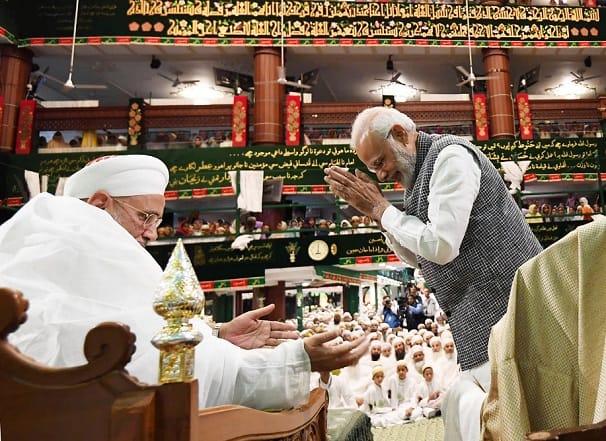
Syed Ali Mujtaba
In the series of articles on the voting choices of Muslims in India, this is the ninth write-up that looks at the political scenario in Gujarat. The idea is to submit the voting options for Muslims for the 2024 Lok Sabha election.
There are 26 Lok Sabha seats in Gujarat. Here Muslim constitutes 9.67% of the state’s population. The conspicuous fact is no Muslim candidate has been successful in the Lok Sabha election from Gujarat for the last thirty years. The last Muslim to become an MP was Ahmed Patel, a Congress candidate in 1984.
In the current Lok Sabha election neither the BJP nor the Congress has given a single ticket to Muslim candidates. Muslims are contesting as independent or as candidates of the Samajwadi Party (SP) the Aam Admi Party (AAP) or the Bahujan Samaj Party (BSP). This is only for losing purposes and making the BJP a winner out of default.
Significant Muslim presence is found in; Surat East 26.4%, Dariyapur 28.6%, Bapungar 16.1%, Bhuj 14.9%, Godhra 14.9%, Jamalpur-Khadia 29.3% and Danilimda 27.4%. The Bharuch Lok Sabha seat has a 23.15% Muslim population, the highest concentration of Muslim voters in Gujarat. It’s followed by Kutch (22%), Jamnagar (16.55%), Dwarka (15%), and Ahmedabad (13.38%). Other places where Muslims are in an influential position are; Panchamahal, Kheda, Anand, Bharuch, Navsari, Sabarka, Sabarkantha, Jamnagar, and Junagadh seats.
The fact is Muslims are not only socially but also politically marginalized in Gujarat. In electoral terms, Muslims count for little in Gujarat. Even being over 9% share in the state’s population and wielding influence on 18 Assembly seats Muslim’s presence is abysmally poor in the state legislature.
Muslim voters dominate 9 of Gujarat’s 182 assembly seats; Daryapur, Jamalpur-Khadia, Vejalpur, Bhuj, Abdasa, Wagra, Limbayat, Surat-East, and Wankaner.
However, there is only one Muslim MLA in Gujarat right now. In 2017 there were three Muslim MLAs. Their representation in the assembly has been dwindling from 12 to 2 to 1 in the recent past.
This is because Gujarat is under the tight grip of the RSS ideology that wants a Muslim-free political discourse in India. The irony is even Congress follows the path of RSS ideology in Gujarat.
The other reason is, Congress is hesitant to field Muslim candidates in Gujarat. Earlier Congress used to give tickets to as many as 12 Muslim candidates, later it reduced this number to 6 and then to 5, and now none. Muslims are at the receiving end of the Congress that has taken their votes for granted.
An important development is, the AIMIM has entered the political scene in Gujarat. It has given a notable performance in the municipality elections of 2021. AIMIM had fielded 24 candidates in three municipalities- Godhra, Bharuch, and Modasa and won 17 seats.
In the 2024 Lok Sabha election, Muslim has only two choices in Gujarat. One is the Congress and the other is AIMIM. For Muslims in Gujarat, the game appears to be wide open in many seats and the BJP is finding it hard to defend its record due to a host of factors.
If Muslim votes get consolidated and go to one candidate, that has winning capability, the prospects of Muslims winning a seat or two can be a possibility in Gujarat.
Muslims in Gujarat need to wake up and reorganize themselves based on their inner strength. Taking shelter under Congress or AIMIM cannot save them from the humiliation they are facing now in Gujarat. Muslims have to rise, do self-introspection, and build new strategy to fight against anti-Muslim forces in Gujarat. This is only possible if they gain enough political strength in Gujarat.
Syed Ali Mujtaba is a journalist. He can be contacted at syedalimujtaba2007@gmail.com
